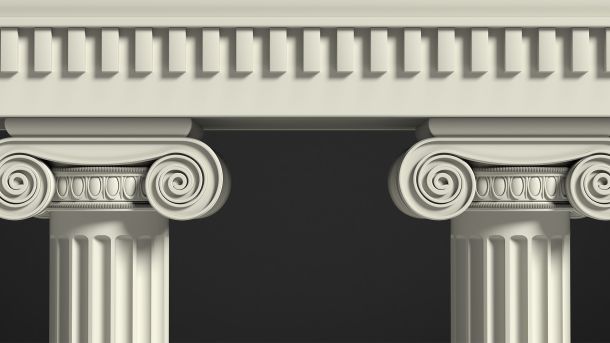News Archive
May 24, 2007
The Path to Attaining Clarification Concerning The Three Fundamental Principles
So this book called al-Uṣūl al-Thalāthah is from the best books of ʿaqīdah (creed) for the seeker of knowledge who is at the beginners level, or at an intermediate level. That means that no one from amongst the students of knowledge is without need of it for the explanation of the correct ʿaqīdah and whatever opposes it. Rather, no one from amongst the Muslims under obligation is free of need from it. So it is built to be memorised and have its meaning understood, and it is also befitting of being taught by the teachers and Scholars, not to mention that the issue of ʿaqīdah discussed h…
May 24, 2007
The Character of the Muslim
The Noble Scholar speaks about various aspects of manners and proper Islamic etiquette. This lecture is timely, considering the fact that many of those calling to the Religion of Allāh are accused of having crude manners and being harsh-hearted.
May 24, 2007
Prophet King or Slave Messenger
Imām ibn Rajab al-Ḥanbalī Mentions:1 The Prophet (ﷺ) chose the station of al-ʿubūdīyyah (slavery and servitude) over and above the station of kingship. Once – on the day of the conquest of Makkah – a man stood-up (out of reverence) for the Prophet (ﷺ), who, being shocked, said to him, “Do not trouble yourself! Indeed, I am not a king. Rather, I am merely the son of a Qurayshī woman who eats dry meat.”2
It has also been authentically reported from the Prophet (ﷺ) that he said,
Do not over-praise me as the Christians over-praised ʿĪsá, son of Maryam. Indeed, I am only a slave. So call me the…
May 24, 2007
The Sunnah Is Like the Ark of Nūh
In this lecture is a beautiful piece of advice in which the Shaykh Muḥammad ibn Ṣāliḥ al-ʿUthaymīn reminds the Muslimīn that they need to unite upon one manhaj (methodology) and to hold on tightly to the rope of Allāh just as the companions of the Messenger of Allāh (ṣallallāhu ʿalayhi wa-sallam) were united upon one manhaj and their belief was one.
The Shaykh emphasizes the importance of accepting the truth and likewise rejecting falsehood no matter who it comes from. The Shaykh then goes on to mention that one should adorn himself/herself with the best of ma…
May 23, 2007
Preserving the Uṣūl
Shaykh Muḥammad ibn Ṣāliḥ al-ʿUthaymīn – raḥimahullāh – mentioned:1 The Messenger of Allāh (ﷺ) explained clearly to the people – completely and clearly – what their Lord had revealed for them; both the detailed matters and the important ones., the apparent matters and the hidden ones, to such an extent that he (ﷺ) taught them what they needed to know with respect to matters of eating, drinking, marriage, clothing and housing. So he taught them the etiquette of eating, drinking and relieving one’s self; the etiquette of marriage; the etiquette of clothing and of entering and leaving the house…
May 23, 2007
This is Our ʿAqīdah
A detailed overview of the pure ʿAqīdah of Islām. An explanation by the great Scholar from Ethiopia, Shaykh Muḥammad Aamaan al-Jaamee. One who Imām Ibn Bāz praised as ‘A possessors of a sound ʿaqīdah’.
This two-tape set produces countless knowledge-filled points clarifying the ʿAqīdah of Islām. The Shaykh brings Verses from the Qurʾān, Aḥadīth from the Messenger of Allāh (ṣallallāhu ʿalayhi wa-sallam), narrations from the Companions of the Messenger (ṣallallāhu ʿalayhi wa-sallam), statements from the Salaf and quotes from the Imāms of Ahl al-Sunnah wal Jamāʿah.
From amongst the topics discu…
May 23, 2007
The Foundations of the Religion
al-ʿAllāmah ʿUbayd Ibn ʿAbdullāh al-Jābirī is the eldest of al-Kibārul-ʿUlamāʾ (the major scholars) of this Ummah. In this beneficial phone lecture on the topic of al-Uṣūl ud-Dīn (The Foundations of the Religion) he admonishes the attendees on the topics of Tawḥīd and Kufr, Waajibaat (obligations) and Ḥarām (unlawful), Kufr al-Akbar (the major disbelief) and Kufr al-Asgher (the minor disbelief).
From the Lecture:
“From the foundations of the religion is to submit to Allāh with tawḥīd and to comply with obedience to Allāh and to be free from the people of Shirk (polytheism).”
“It is founded…
May 23, 2007
The Two Fundamental Principles of the Dīn
States al-ʿAllāmah ʿUbayd al-Jābirī, “A lecture concerning the ʿaṣl (foundation) of the religion and that is two affairs… Shaykh Muḥammad Ibn ʿAbd al-Wahaab (raḥimahullāh) stated in his risaʿalát, ‘The origin of the dīn and its foundation are two affairs; the daʿwah, the call to the worship of Allāh alone, to encourage that, to make allegiance to that and to make takfīr of the one who leaves that. And it is to leave shirk and to be harsh against that and to have animosity against the one who is upon that and to make takfīr of the one who does that.’”
“Indeed we have sent Our Messengers wit…








